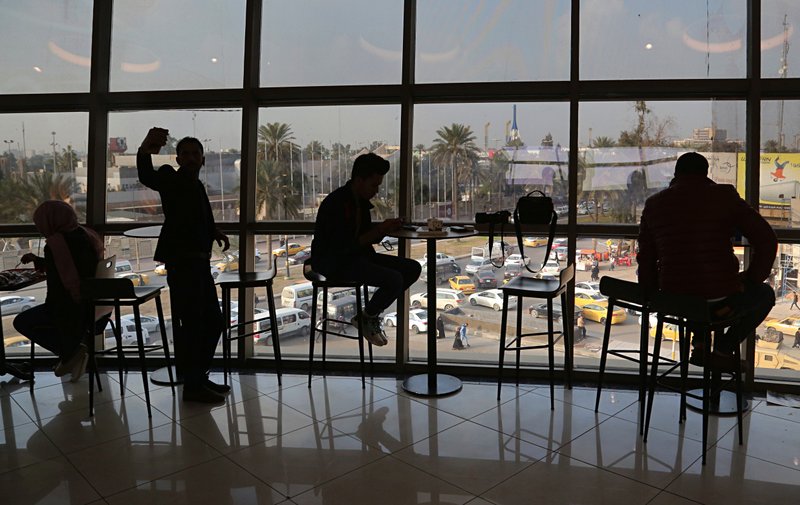BAGHDAD -- Baghdad's main commercial district has seen more bombings than its residents can count. Death visited almost daily during times of war -- most horrifically, a 2015 suicide bombing that ripped through two shopping malls, killing over 300 people.
But over the past year or so, the residents of Karrada have felt more normal than they have in decades. Streets lined with food stalls are crowded with shoppers, coffee shops and restaurants are packed until late, and the gray cement blast walls that protected against bombings are being removed.
"I used to go to school and come back home, nothing more," said Rusul Mohsen, 33, a middle school teacher, seated recently at a storefront sipping coffee. "If I went to a restaurant, I would ask to sit in a corner the farthest away from any windows, fearing a car bomb explosion might shatter the glass."
For the first time in 15 years there is no major war or insurgency in Iraq, and the defeat of the Islamic State extremist group in late 2017 after a ruinous four-year war has given the population a moment of respite. Despite the enormous challenges ahead, there is a guarded sense of hope across the capital.
Car bomb explosions that became the norm after the U.S.-led invasion in 2003 have ceased -- at least for now. Thousands of concrete barriers that snaked through the city as protection from suicide car bombers have been towed away in trucks, easing traffic.
Parts of the heavily fortified Green Zone on the west bank of the Tigris River have reopened to the public, including public access to the landmark "Victory Arch" -- a 131-foot tall arch of two swords held by bronze casts of former dictator Saddam Hussein's hands to commemorate the Iran-Iraq war. On Monday, Prime Minister Adel Abdul Mahdi eased restrictions on the Green Zone further, announcing the highly secure area would stay open to the public for an hour and a half longer in the day.
"Baghdad feels better than it has since 2003," remarked a veteran Western diplomat in Baghdad.
Even so, the country faces major challenges.
The Islamic State group, which is about to lose its last shred of territory in neighboring Syria, is creeping back into Iraq, stepping up insurgent-style attacks in areas outside Baghdad and the country's north. Tens of thousands of people remain displaced and much of the country is in ruins. The country is plagued by corruption, and in the oil-rich but parched south, violent riots have repeatedly broken out against living conditions.
Baghdad, an ancient metropolis of 8 million people that was once the Arab world's cultural center, is barely functional, its infrastructure crumbling. Armed militias that fought the Islamic State alongside the Iraqi armed forces roam the streets in what many see as the country's latest menace, amid reports of kidnappings for ransom and general lawlessness.
"There is a big gap between people's aspirations and the government ability to deliver," the Western diplomat said, speaking on condition of anonymity so he could speak freely.
Still, many hope that after years of bloodshed, Iraq is starting to turn a corner.
In Karrada, the Hadi Center where a 2015 suicide bombing trapped people in a burning inferno for hours, killing around 300 people, is full of shoppers.
Assem Gharib, owner of a pastries and ice cream shop, said for years he used to pay someone to supervise the street outside his shop and keep cars from parking in front.
"I used to be frightened whenever a car approached, imagining it to be a suicide bomber or a car bomb. Now it's the opposite, we are happy when a car parks in front of the shop," he said.
A Section on 03/12/2019
